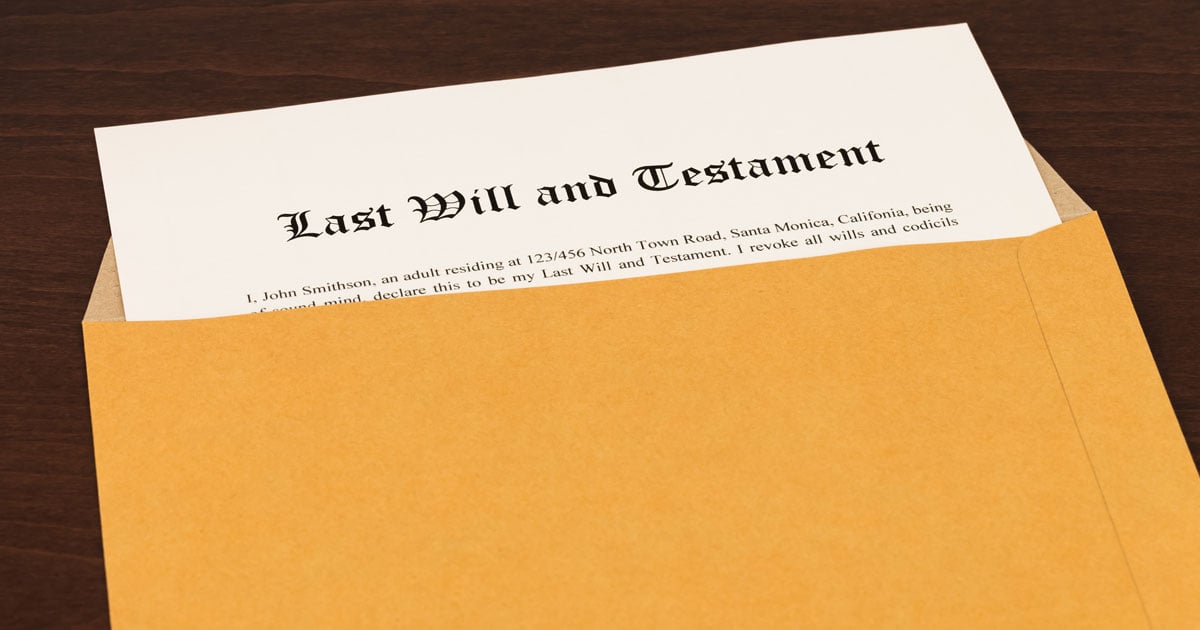In this practice update, we delve into the legal grounds for removing an executor, a situation fraught with potential conflict and complexity.
Barrister and adjunct lecturer at the College of Law, Tasman Ash Fleming, offers insights into the most common reasons for executor removal, from conflicts of interest to financial mismanagement. We'll explore the legal process for challenging an executor and the importance of clear evidence to secure a court order in Victoria.
Common Grounds for Removal
“A party may seek that an executor be passed over, removed, or renounce their appointment as an executor,” Tasman says.
This can occur if they are a party as defined by s34 of the Administration and Probate Act 1958(1).
They can be removed where the Executor:
‘(a) remains out of Victoria for more than two years;
(b) desires to be discharged from his office of executor or administrator; or
(c) after such grant or appointment refuses or is unfit to act in such office or is incapable of acting therein.’
“However, finding that an executor is ‘unfit to act’ has been historically narrow, but the current position includes factors such as delay, conflict, or failure to administer the estate,” Tasman says. “The Court will ultimately focus on the welfare of the beneficiaries, rather than the wishes of the testator or even the beneficiaries.”
According to Miller v Cameron (1936) 54 CLR 572 Per Dixon J 580-1:
‘The jurisdiction to remove a trustee is exercised with a view to the interests of the beneficiaries, to the security of the trust property and to an efficient and satisfactory execution of the trusts and a faithful and sound exercise of the powers conferred upon the trustee. In deciding to remove a trustee the Court forms a judgment based upon considerations, possibly large in number and varied in character, which combine to show that the welfare of the beneficiaries is opposed to his continued occupation of the office. Such a judgment must be largely discretionary. A trustee is not to be removed unless circumstances exist which afford ground upon which the jurisdiction may be exercised.’
Navigating Multiple Executors
“One executor can remain while others are removed,” Tasman says.
“There is an interesting recent case of Ghosh v Ghosh & Ors [2024] VSC 259 which involved the passing over of an executor,” Tasman says. “Justice O’Meara stated in that case: 'Even among the cases in the Trust, Equity, and Probate List of the Court, the circumstances of the present case are lamentable.'”
“Several issues arose in that case, but the issue that concerns us is that the Court needed to decide whether to pass over one or other of the parties to the proceeding. A number of serious allegations were made by the defendant, including fraud.”
Despite advising the Court that he would call witnesses to give evidence in support of the propositions, the defendant failed to do so.
“The deceased had appointed the defendant as executor and weight needed to be put on that, but the conduct of the defendant made that untenable,” Tasman explains.
As Justice O’Meara stated in para 235: ‘In that context, the mere fact that the mother appointed the first defendant among her executors does not mean that she must be taken to have forever condoned any and all kinds of aggressive, uncooperative and destructive behaviour by him.’
Building a Strong Case Prior to Litigation
“The case will need to turn on its facts, usually based on the actions or factors of the executor so it won’t be a matter of creating a case. It is also a discretion,” Tasman says.
“Firstly, you will need to assess whether there are grounds and which in particular you will rely on. I would begin to make a chronology. This can assist you in any legal matter but it may be particularly helpful in this instance regarding the calculation of delay. Further, it would be good to create a list of actions by the executor as to what tasks they are required to undertake and what tasks they have completed.”
If the parties are unable to resolve the matter, it may be that an application needs to be made. This will necessitate an evaluation of what evidence you have or what evidence you require. Tasman cites a recent interesting case, Jedrzejewska v Sheedy [2023] VSC 511, which was a decision of Justice Moore.
“That Court passed over the brother of a deceased who was appointed executor,” Tasman says.
“The Court found that the executor was unable to attend to their duties due to ill health and that there was a serious failure to discharge their duty by failing to respond to requisitions of the Registrar of Probate.”
As Justice Moore summarised in paragraphs 8-9:
‘The Court has both inherent power and power under s 15 of the Administration and Probate Act 1958 to pass over an executor. The exercise of the power is, however, to be informed by an appreciation of the limited nature of the Court’s jurisdiction in that, in general, a person named as executor by a testator is entitled to a grant of probate. The Court will not readily pass over a named executor.’
‘The jurisdiction to pass over an executor is to be exercised having regard to the due and proper administration of the estate and the interests of the parties beneficially entitled to it. The jurisdiction has been exercised in a range of circumstances, including those of the type relied upon by the plaintiff in this matter set out in above.’






















































![How to handle Direct Speech after Gan v Xie [2023] NSWCA 163](https://images4.cmp.optimizely.com/assets/Lawyer+Up+direct+speech+in+drafting+NSW+legislation+OCT232.jpg/Zz1hNDU4YzQyMjQzNzkxMWVmYjFlNGY2ODk3ZWMxNzE0Mw==)













































